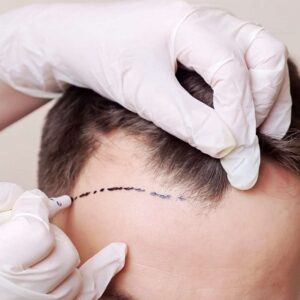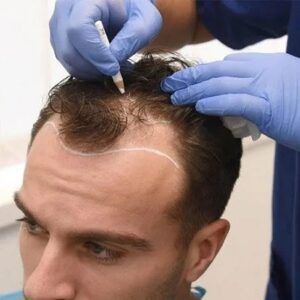
Did you know hair transplant surgery is the most popular cosmetic procedure for men worldwide? Scarring, autoimmune disorders, illness, drugs, environment, and heredity are a few of these causes. However, women and girls also experience hair loss. Therefore, if you have been battling receding or thinning hair, you have probably tried various treatments to reverse or halt the effects. You may, however, choose that a hair transplant is the best course of action if your hair loss is severe or unresponsive to medication.
Additionally, officially categorized as low-risk, hair transplants are a common and safe cosmetic operation. Similarly, preparation is still necessary to guarantee that everything runs smoothly and gets the finest outcomes. Further, here are a few measures of preparing for a hair transplant: tips from a surgeon.
How To Prepare for A Hair Transplant: Tips from A Surgeon
We have gathered some more important tips to prepare for a hair transplant to help you get the best hair transplant in Islamabad.
Selecting the Correct Clinic and Surgeon
Selecting an appropriate physician and facility is essential for guaranteeing a successful hair transplant procedure. Seek a certified surgeon who specializes in hair transplant procedures. Examine reviews and request prior patient before and after pictures. Observe a track record of successfully executing FUT and FUE hair transplant operations.
Mentally Getting Ready for the Surgery
To guarantee a good experience and result, it is important to psychologically prepare for the hair transplant procedure. Recognize that having a hair transplant requires surgery and that there are risks and possible consequences, just as with any other procedure. Ask questions and talk with your surgeon to alleviate any worries or misgivings. It is also critical to set reasonable expectations and recognize that imperfect or delayed outcomes are possible.
Nutrition & Diet Before Surgery
To encourage recovery and lower the risk of problems, it is important to maintain a balanced diet and level of nutrition before surgery. Take a diet rich in fruits, vegetables, lean meats, and whole grains, and ensure it is balanced. Steer clear of alcohol, processed meals, and sugary beverages. Your surgeon could suggest certain dietary limitations or supplements depending on your particular circumstances.
Leave Certain Medications Before Surgery.
Certain drugs have the potential to worsen bleeding complications and disrupt anesthetics during surgery. Discuss your medicines with your surgeon, including over-the-counter, prescription, and herbal supplements. Before the procedure, your surgeon could advise you to stop taking a certain medicine or change the dose.
Talking With the Surgeon About Options for Anesthesia
Three types of anesthesia are available for hair transplant surgery: general anesthesia, sedation, and local anesthesia. After discussing the possibilities with your surgeon, choose the one that best fits your requirements and preferences. Additionally, your surgeon will review each treatment’s advantages and disadvantages.
Understanding What to Expect in the Rehab Phase
Recuperation duration after hair transplant surgery may vary based on the specific treatment and individual circumstances. You should have reasonable expectations and recognize that the transplanted hair may fall out in the first weeks before the onset of new hair growth. During the healing time, the surgeon will advise you about aftercare for your scalp.
Bringing Cozy Clothes for the Procedure
To guarantee a nice experience on the day of the procedure, dress comfortably and loosely. Steer clear of anything that might rub against your scalp, including clothing that is too tight. Also, avoid wearing any accessories or jewelry that could come in the way of the procedure.
Giving Up Smoking Before Surgery
Smoking interferes with blood flow and oxygen delivery to the scalp, which raises the risk of problems both before and after surgery. Give up smoking two weeks before the procedure and stay away from it for two weeks after. Speak with your physician or look for assistance from a smoking cessation program if you need help stopping.
Conclusion
This tutorial emphasizes the importance of careful planning for successful hair transplant preparation. It emphasizes the importance of accepting post-operative treatment and understanding pre-surgery instructions. Skilled surgeons can guide individuals through the process, while pre-operative care, lifestyle modifications, and post-operative care contribute to better outcomes and faster recovery. Customizing the procedure to each patient’s needs requires consultation with a board-certified surgeon. These tips benefit those seeking a fuller, more natural-looking head of hair.
Consult Dynamic Clinic Islamabad now for the best hair transplant consultation and treatment for maximized and risk-free results.












